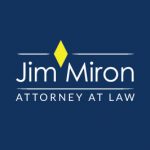May is motorcycle safety month. Do you know how to protect yourself in the case of a motorcycle accident? Now is a great time to look at your habits, consider your health and well-being, and take steps to keep yourself safe. Basic Safety … [Read More...]
Use the listing(s) above to find the right listing for you
or contact us today and we'll connect you with someone that can help.
Connecticut Personal Injury Lawyers
Connecticut Government Resources
Law Schools in Connecticut
Connecticut Legal Associations
Connecticut Personal Injury Overview
Personal injury law involves civil claims in which an individual is injured through the negligence, recklessness or intentional misconduct of another person, a company, or property owner. A personal injury lawsuit may arise from physical or emotional injuries. Personal injury law compensates individuals injured as a result of another’s negligence or intentional misconduct. Personal injury laws vary from state to state. If you believe you have a personal injury claim, you should contact a personal injury lawyer in Connecticut to evaluate your claim.
Click here for more information about Personal Injury law in Connecticut.
Connecticut follows a system using the modified comparative negligence – 51% rule. In states following a modified comparative fault – 51% rule, an injured party can only recover if it is determined that his or her fault in causing the injury does not reach 51%. If the injured party was 50% or less at fault, he or she may still recover damages. However, if a plaintiff’s fault reaches 51%, he or she recovers nothing. In other words, a plaintiff may have caused half of the accident and still recover damages from the court, but if it is found that the plaintiff’s fault was responsible for more than half of the accident, that plaintiff is barred from receiving any damages determined by the court. Here, as in a pure comparative negligence state, a plaintiff’s recovery is reduced by the degree of his or her fault. For example, if Debbie sued Dave for damages she suffered in a car accident involving their vehicles, and Debbie was 51% at fault, Debbie would not recover anything from Dave. If, however, Debbie was 40% at fault, she could recover damages, but the damage award would be reduced by her portion of the fault in causing the injury. Therefore, a finding that Debbie suffered $10,000 in damages would result in Debbie receiving an award reduced by 40%, or a final award of $6,000.
Click here to read about contributory vs. comparative negligence.
A statute of limitations is a type of law that restricts the period of time that a person may initiate legal proceedings. Time limits can vary depending on the type of case and the state where the particular cause of action occurred. To learn more about statutes of limitations, read our Statute of Limitations page. To see a state by state comparison chart for the personal injury statute of limitations for each state, read our Statute of Limitations for Personal Injury Actions page.
Connecticut Statutes of Limitations
In Connecticut, the courts follow a pure several liability approach in entering judgment against multiple defendants. Here, the amount for which each defendant is financially liable is proportionate to his or her share of the fault. In other words, a defendant that caused the majority of the damages will be responsible for a majority of the financial judgment. However, the plaintiff may seek relief from the court if any portion of the judgment is not satisfied within one year from the date the judgment was entered. In such a case, the court will re-allocate the remaining portion of the judgment based on the other defendant’s share of the fault.
Click here for more about Joint and Several Liability.
One of the best ways to research personal injury lawyers in Connecticut is to contact courts in CT and ask them for information about the personal injury attorneys who utilize their legal facilities when they bring personal injury cases to court. We have compiled a list below of some courts in Connecticut to get you started:
Supreme Court
Connecticut Supreme Court
231 Capitol Avenue
Hartford, CT 06106
860-757-2200
Court of Appeals
Connecticut Appellate Court
75 Elm Street
Hartford, CT 06106
860-757-2200
Superior Courts
Ansonia-Milford Judicial District
14 West River Street
P.O. Box 210
Milford, CT 06460
203-877-4293
Danbury Judicial District
146 White Street
Danbury, CT 06810
203-207-8600
Fairfield Judicial District
1061 Main Street
Bridgeport, CT 06604
203-579-6527
Hartford Judicial District
95 Washington Street
Hartford, CT 06106
860-548-2700
Hartford Judicial District – Judicial District at 90 Washington Street
90 Washington Street
Hartford, CT 06106
860-706-5100
Hartford Judicial District – Complex Litigation Docket
95 Washington Street
Hartford, CT 06106
860-548-2834
Hartford Judicial District – Community Court Session at Hartford
80 Washington Street
Hartford, CT 06106
860-756-7020
Litchfield Judicial District
15 West Street
Litchfield, CT 06759
860-567-0885
Middlesex Judicial District
1 Court Street
Middletown, CT 06457
860-343-6400
Middlesex Judicial District – Regional Family Trial Docket
1 Court Street
Middletown, CT 06457
860-343-6330
Middlesex Judicial District – Complex Litigation Docket
1 Court Street
Middletown, CT 06457
860-343-6350
New Britain Judicial District
20 Franklin Square
New Britain, CT 06051
860-515-5180
New Haven Judicial District
235 Church Street
New Haven, CT 06510
203-503-6800
New Haven Judicial District
54 W. Main Street
Meriden, CT 06451
203-238-6666
New London Judicial District
70 Huntington Street
New London, CT 06320
860-443-5363
New London Judicial District – Judicial District at Norwich
1 Courthouse Square
Norwich, CT 06360
860-887-3515
Stamford-Norwalk Judicial District
123 Hoyt Street
Stamford, CT 06905
203-965-5308
Tolland Judicial District
69 Brooklyn Street
Rockville, CT 06066
860-896-4920
Waterbury Judicial District
300 and 400 Grand Street
Waterbury, CT 06702
203-591-3300
Windham Judicial District
155 Church Street
Putnam, CT 06260
860-928-7749






